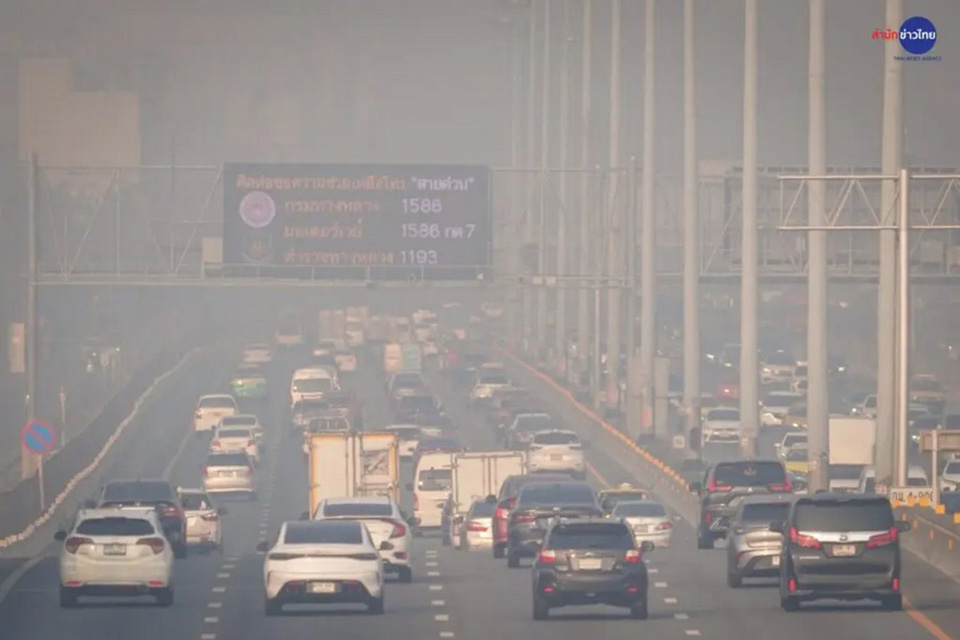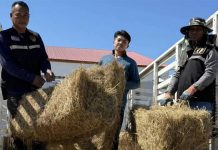
BANGKOK, Thailand – International media reports highlight the air pollution crisis in Bangkok, where more than 250 schools were forced to close on Thursday, January 23, due to hazardous levels of PM2.5 particles in the air. At the same time, authorities urged people to work from home and restricted the entry of heavy trucks into the capital.
According to AFP, seasonal air pollution has long plagued Thailand, a problem worsened by winter weather with cooler temperatures and stagnant winds, along with smoke from crop burning and vehicle emissions.
On the morning of January 23, Bangkok ranked as the sixth most polluted major city in the world, based on data from IQAir, with PM2.5 levels reaching 122 micrograms per cubic meter. The World Health Organization recommends that the 24-hour average for PM2.5 should not exceed 15 micrograms per cubic meter.
AFP reported that earlier this week, Bangkok authorities had advised schools in areas with high PM2.5 levels to close, and by Thursday morning, 194 out of 437 schools under the Bangkok Metropolitan Administration (BMA) had shut down, affecting tens of thousands of students. This is the highest number of school closures since 2020, when all BMA schools were closed due to air pollution.
Additionally, 58 out of 156 schools under the Ministry of Education also closed on January 23. While there were other schools across the city, including private institutions, no data is available on how many of them shut down.
Children are particularly vulnerable to air pollution, but child rights organizations have warned that closing schools may negatively affect the most vulnerable students. “School closures should be a last resort,” said Severine Leonardi, Deputy Representative of UNICEF in Thailand. “We need to signal the necessity of investing in education systems and protecting children,” she told AFP.
Authorities also encouraged people to work from home this week, but it was a voluntary scheme with fewer than 100,000 participants in a city of 10 million people. In addition, they imposed restrictions on trucks over six-wheelers entering certain areas of the capital until Friday evening, January 24.
The government has introduced incentives to stop burning rice straw and stubble, and has even experimented with methods like spraying cold water or dry ice over the pollution. However, AFP notes that these measures have had limited impact so far. Opposition politicians have accused Prime Minister Paetongtarn Shinawatra of failing to seriously address the issue.
Clean air activists are pushing for new legislation, expected to be approved this year. “You need comprehensive laws across all areas to tackle this crisis,” said Guillaume Rachu, Executive Director of Save the Children Thailand. “It’s difficult, but I believe that with clean air laws, we can make it happen.”










